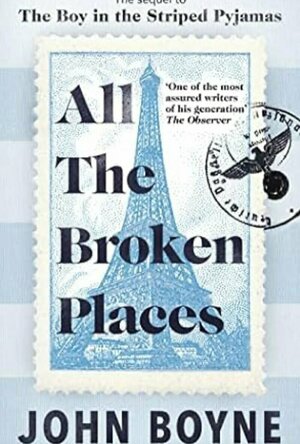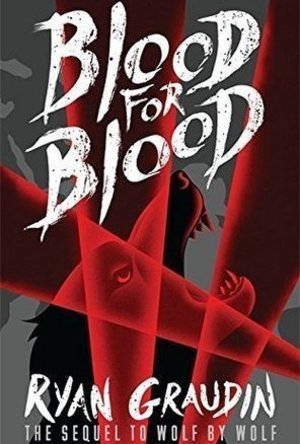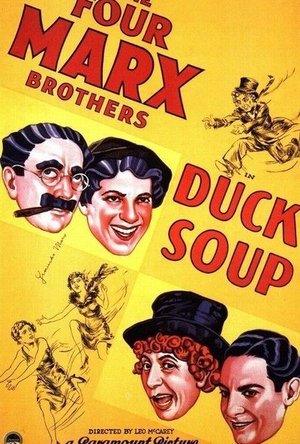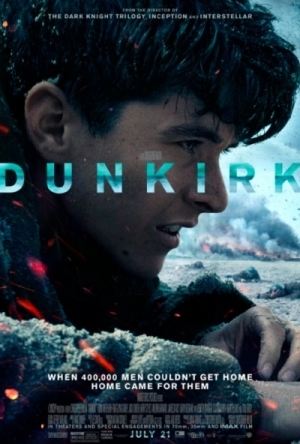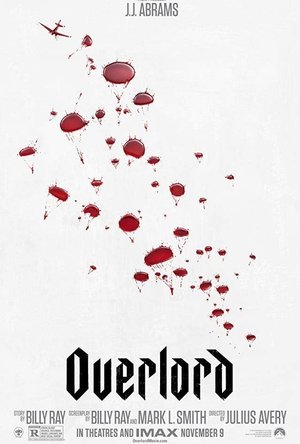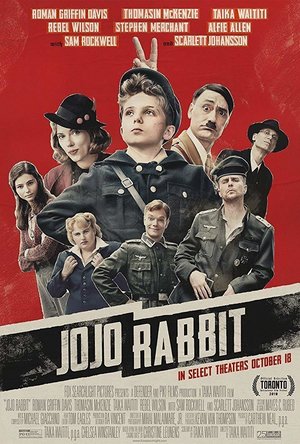Search

Into That Darkness
Book
The biography of Franz Stangl, commandant of the Treblinka extermination camp - a classic and...
ClareR (6079 KP) rated All the Broken Places in Books
Nov 4, 2023
Gretel Fernsby has a terrible secret that she’d rather others didn’t know. If you’ve read The Boy in the Striped Pyjamas, you’ll recognise the name: Gretel is the daughter of the camp Commandant of Auschwitz.
In short chapters, flashing between the past and the present, we learn about 91 year old Gretel’s past, and what happened when she and her mother escaped Germany.
Gretel is very well off, living in an expensive block of very large flats in central London. She doesn’t really have any friends, and seems to keep her true self from everyone including her son.
She is confronted with the memory of her younger brother, Bruno, when a boy of his age moves in to the downstairs flat. She realises that his father is violent, and his mother is abused. Gretel can’t let this kind of violence happen again.
The characters in this were superb. Whilst the first book had its problems with historical accuracy, I feel that this book centred more around trauma, guilt and shame. Gretel carries all of these things around with her forever. She feels culpable for what happened in the camp - even though she was both a child and female. In retrospect, she is able to see what was wrong with the nazi regime, but at the time would have been brainwashed. She wouldn’t have known a time where Jews and other “undesirable” minorities would have been treated any differently. The wonder is that she went on to learn that this was wrong. The trauma that she carries with her from the death of her brother, learning about what her father was guilty of, and occurrences in Paris, is lifelong.
From Gretel’s life experiences to those of her downstairs neighbour, everything is handled with compassion and tact. Again, it’s not perfect, but then neither are humans. And that is what this book shows above all: that we can learn from our mistakes if we are willing to do so.
In short chapters, flashing between the past and the present, we learn about 91 year old Gretel’s past, and what happened when she and her mother escaped Germany.
Gretel is very well off, living in an expensive block of very large flats in central London. She doesn’t really have any friends, and seems to keep her true self from everyone including her son.
She is confronted with the memory of her younger brother, Bruno, when a boy of his age moves in to the downstairs flat. She realises that his father is violent, and his mother is abused. Gretel can’t let this kind of violence happen again.
The characters in this were superb. Whilst the first book had its problems with historical accuracy, I feel that this book centred more around trauma, guilt and shame. Gretel carries all of these things around with her forever. She feels culpable for what happened in the camp - even though she was both a child and female. In retrospect, she is able to see what was wrong with the nazi regime, but at the time would have been brainwashed. She wouldn’t have known a time where Jews and other “undesirable” minorities would have been treated any differently. The wonder is that she went on to learn that this was wrong. The trauma that she carries with her from the death of her brother, learning about what her father was guilty of, and occurrences in Paris, is lifelong.
From Gretel’s life experiences to those of her downstairs neighbour, everything is handled with compassion and tact. Again, it’s not perfect, but then neither are humans. And that is what this book shows above all: that we can learn from our mistakes if we are willing to do so.
PO
Panzer Operations: Germany's Panzer Group 3 During the Invasion of Russia, 1941
Book
This book, originally published in German in 1956, has now been translated into English, unveiling a...

Heidegger's Hut
Book
"This is the most thorough architectural 'crit' of a hut ever set down, the justification for which...
Hazel (1853 KP) rated Blood for Blood (Wolf By Wolf #2) in Books
Dec 17, 2018
<i>This eBook was provided by the publisher via NetGalley in exchange for an honest review </i>
Ryan Graudin blew readers away with her alternate historical novel <i>Wolf by Wolf</i>. Now it is time to conclude the imaginative narrative with the highly anticipated sequel, <i>Blood for Blood. </i>Continuing from the precise moment Yael pulled the trigger on the Führer’s doppelgänger, the reader is thrown into a lively story of twists and turns, where danger lives around every corner.
To recap, it is 1956 and Hitler has won the war. Germany, or Germania, is ruling over Europe and many countries in Asia and Africa. Yael is a Jewish girl who a doctor experimented on whilst she was detained in a concentration camp. As a result of the brutal medical treatment, Yael is a successful result of the Doppelgänger Project – she can now change her physical appearance and anatomy at will.<i> Wolf by Wolf</i> focused on Yael and the resistance’s attempt to win a prestigious motorcycle race in order to get close to the Führer and end his life. As it turns out, Yael is not the only person with this skin shifting ability.
On the run with the entire world knowing her secret, Yael is desperate to make contact with the resistance leaders and continue with their plot to assassinate Hitler. However, unable to leave innocent people to suffer at the hands of the National Socialists, Yael ends up being accompanied and hindered by two Aryan boys, Luka and Felix. Yet with no way of knowing who can be trusted, Yael is taking a fatal risk by helping others instead of saving herself.
Despite circumstances, the blossoming romance that began to advance toward the end of the first book continues to feature in <i>Blood for Blood</i> as characters begin to rely on and trust each other. Nonetheless, constant plot developments obstruct all thoughts of a happy ending. Clever twists and gradually emerging truths prevent any opportunity for rest or safety.
<i>Wolf by Wolf </i>was an exciting, new concept for young adult readers, answering a “what if” question about the second world war. Yet the historical setting – albeit fictional – was impeded by the focus on the Axis Tour as characters raced from Germania to Tokyo. In contrast, <i>Blood for Blood</i> leaves all distractions behind, giving full attention to the life and danger under Hitler’s dictatorship. Despite Germany/Germania’s triumphant win, war is still raging throughout Europe. Anyone not meeting the Aryan description is at risk of death or deportment. Strictly speaking, the situation described must look similar, if not the same, as the true result of Nazi ruling.
Ryan Graudin is a formidable writer with the ability to make fiction seem like reality. Despite the added science fiction twist, the imaginative scenario is so well researched and planned that it becomes almost believable. Graudin comes at the story from so many directions, evidencing the effort put into creating the thrilling plot. It is one thing to be able to string words together, but to make them come alive it takes a genius.
<i>Blood for Blood</i> is by far the better of the two novels, making it the perfect conclusion to a fantastic two-part story. Beginning with explosive action and not stopping until its heart-wrenching conclusion, <i>Blood for Blood</i> will satisfy readers of all ages and genres. Those who have read <i>Wolf by Wolf</i> definitely must get their hands on this amazing sequel. You will not be disappointed.
Ryan Graudin blew readers away with her alternate historical novel <i>Wolf by Wolf</i>. Now it is time to conclude the imaginative narrative with the highly anticipated sequel, <i>Blood for Blood. </i>Continuing from the precise moment Yael pulled the trigger on the Führer’s doppelgänger, the reader is thrown into a lively story of twists and turns, where danger lives around every corner.
To recap, it is 1956 and Hitler has won the war. Germany, or Germania, is ruling over Europe and many countries in Asia and Africa. Yael is a Jewish girl who a doctor experimented on whilst she was detained in a concentration camp. As a result of the brutal medical treatment, Yael is a successful result of the Doppelgänger Project – she can now change her physical appearance and anatomy at will.<i> Wolf by Wolf</i> focused on Yael and the resistance’s attempt to win a prestigious motorcycle race in order to get close to the Führer and end his life. As it turns out, Yael is not the only person with this skin shifting ability.
On the run with the entire world knowing her secret, Yael is desperate to make contact with the resistance leaders and continue with their plot to assassinate Hitler. However, unable to leave innocent people to suffer at the hands of the National Socialists, Yael ends up being accompanied and hindered by two Aryan boys, Luka and Felix. Yet with no way of knowing who can be trusted, Yael is taking a fatal risk by helping others instead of saving herself.
Despite circumstances, the blossoming romance that began to advance toward the end of the first book continues to feature in <i>Blood for Blood</i> as characters begin to rely on and trust each other. Nonetheless, constant plot developments obstruct all thoughts of a happy ending. Clever twists and gradually emerging truths prevent any opportunity for rest or safety.
<i>Wolf by Wolf </i>was an exciting, new concept for young adult readers, answering a “what if” question about the second world war. Yet the historical setting – albeit fictional – was impeded by the focus on the Axis Tour as characters raced from Germania to Tokyo. In contrast, <i>Blood for Blood</i> leaves all distractions behind, giving full attention to the life and danger under Hitler’s dictatorship. Despite Germany/Germania’s triumphant win, war is still raging throughout Europe. Anyone not meeting the Aryan description is at risk of death or deportment. Strictly speaking, the situation described must look similar, if not the same, as the true result of Nazi ruling.
Ryan Graudin is a formidable writer with the ability to make fiction seem like reality. Despite the added science fiction twist, the imaginative scenario is so well researched and planned that it becomes almost believable. Graudin comes at the story from so many directions, evidencing the effort put into creating the thrilling plot. It is one thing to be able to string words together, but to make them come alive it takes a genius.
<i>Blood for Blood</i> is by far the better of the two novels, making it the perfect conclusion to a fantastic two-part story. Beginning with explosive action and not stopping until its heart-wrenching conclusion, <i>Blood for Blood</i> will satisfy readers of all ages and genres. Those who have read <i>Wolf by Wolf</i> definitely must get their hands on this amazing sequel. You will not be disappointed.
RəX Regent (349 KP) rated Duck Soup (1933) in Movies
Feb 18, 2019
“You’re a brave man. Go and break through the lines. And remember, while you’re out there risking your life and limb through shot and shell, we’ll be in be in here thinking what a sucker you are” Rufus T. Firefly
And the one liners just keep on coming…
Here we have before you one of the most famous entries form The Marx Brothers as they made their indelible mark on Hollywood(land) and the silver screen back in the 1930’s, moving away from their Vaudeville roots to new level of immortally on celluloid.
The fifth film to credit the “The Marx Brothers”, Duck Soup in on one hand a sharply written satire on the weakness of mob mentality to willingly promote unwelcome change to their society and their willingness to follow just about any lunatic as long as they like what they hear; as well as a straight forward slapstick comedy of the time, in keeping with its music hall roots.
It is the music hall aspect of this classic which can be harder for a modern audience to take to, unless you are already disposed to this sort of rather dated humour. But as a satire, it is brilliant and still very funny over seventy years on.
Groucho Marx steals the show as Rufus T. Firefly as he leads his unwitting and possibly dimwitted fictional country of Fredonia (geddit?) to war and ultimate destruction. He is a character, whilst not in any way taking off Adolf Hitler, who was of course rising to power in Germany at this very moment, was clearly a reflection on this type of reckless and charismatic leader and as the hilarious final act demonstrates, is all too common in history and even in our present.
And the fact that Fredonia is ultimately doomed, was a coincidental foreshadowing of Nazi Germany’s fate a decade later, as well as a clear demonstration of the savvy writing.
Witty, whether it is the physical trademark Marx Brothers comedy or the sharp screenplay by Bert Kalmar and Harry Ruby, based on the stage version of the same name, this a classic satire; whilst not being as hard hitting a s Chaplin’s works of the period, with The Great Dictator (1940) springing to mind, it still holds up and makes its point without hammering you over the head it.
So, you can just enjoy the show and/or take away the message, it is really up to you.
Here we have before you one of the most famous entries form The Marx Brothers as they made their indelible mark on Hollywood(land) and the silver screen back in the 1930’s, moving away from their Vaudeville roots to new level of immortally on celluloid.
The fifth film to credit the “The Marx Brothers”, Duck Soup in on one hand a sharply written satire on the weakness of mob mentality to willingly promote unwelcome change to their society and their willingness to follow just about any lunatic as long as they like what they hear; as well as a straight forward slapstick comedy of the time, in keeping with its music hall roots.
It is the music hall aspect of this classic which can be harder for a modern audience to take to, unless you are already disposed to this sort of rather dated humour. But as a satire, it is brilliant and still very funny over seventy years on.
Groucho Marx steals the show as Rufus T. Firefly as he leads his unwitting and possibly dimwitted fictional country of Fredonia (geddit?) to war and ultimate destruction. He is a character, whilst not in any way taking off Adolf Hitler, who was of course rising to power in Germany at this very moment, was clearly a reflection on this type of reckless and charismatic leader and as the hilarious final act demonstrates, is all too common in history and even in our present.
And the fact that Fredonia is ultimately doomed, was a coincidental foreshadowing of Nazi Germany’s fate a decade later, as well as a clear demonstration of the savvy writing.
Witty, whether it is the physical trademark Marx Brothers comedy or the sharp screenplay by Bert Kalmar and Harry Ruby, based on the stage version of the same name, this a classic satire; whilst not being as hard hitting a s Chaplin’s works of the period, with The Great Dictator (1940) springing to mind, it still holds up and makes its point without hammering you over the head it.
So, you can just enjoy the show and/or take away the message, it is really up to you.
Gareth von Kallenbach (980 KP) rated Dunkirk (2017) in Movies
Jul 11, 2019
In May 1940, as Germany advanced into France, Allied troops found themselves surrounded at the town of Dunkirk with little time to escape. In the distance, the Germans sought to capture or kill each of the nearly 400,000 men. French and British soldiers began the slow process to evacuate using every naval or civilian ship available. Dunkirk examines the heroism involved by everyone on the land, sea, and air in their attempt to get their countrymen home.
When we discuss, reflect, or are taught about World War II, we often think the turning points of the war as the Battle of the Bulge, Leningrad, Midway, or D-Day. In doing this, we overlook moments like Dunkirk. Christopher Nolan exposes how vital this moment was in determining the fate, not only of the war, but the world in Dunkirk.
It is hard to describe what the film is like just from the visuals. It captures you and surrounds you by making the audience feel as though they are witnessing these events from a third-person perspective, as well as, through the eyes of those involved. The film itself is not limited to just the war or a discussion of the circumstances that led up to the war itself. There are no major battles shown, however, the film demonstrates quite vividly the horrors of war, the confusion, the chaos, the brutality, and the fear that each moment might be your last.
Dunkirk, masterfully tells the story of those involved in the evacuation of those troops that found themselves being pursued by Nazi Germany. Each frame will have audiences fearing for the safety of the men on the screen and hoping that they will somehow make it home despite all indications that their fate is sealed. Nolan gives audiences the opportunity to see the events in a multilayered way so that we can understand all of the moving parts involved in this massive undertaking. It renews the appreciation that many of us have for those who fought in World War II and offers a new sense of appreciation for younger generations who are far removed from those events. Most impressive about the film is its ability to be more historically accurate in displaying the different people who actually were fighting. It is not, like Saving Private Ryan, a film that exaggerates American participation in the war to make it look as though the only people fighting were Americans and Nazis. Dunkirk shows how the French, British, and Belgians, of various colors and backgrounds were fighting well before summer of 1944.
The film also pulls of quite an ambitious task by removing the Nazis from the film. This is not to say that there is no German presence in the film, rather, they minimize the focus on the Nazis in order to keep the focus on those evacuating and those involved in assisting with the efforts. In my viewing, I felt that this strengthened the film in adding to the fear by having a faceless enemy, one that could be lurking around the corner or coming around the corner at any moment. This added to the tension to make audiences feel the fear that so many of these young men must have had as they waited to board their ships to get home.
Dunkirk is impressive, emotional, and full of tension. It raises the bar with respect to how historically-based films should be in the representation of events. It does not rely on one linear story to capture the audience. It is an intelligent and overdue homage to the men and women who did all they could to ensure that these men made it home.
When we discuss, reflect, or are taught about World War II, we often think the turning points of the war as the Battle of the Bulge, Leningrad, Midway, or D-Day. In doing this, we overlook moments like Dunkirk. Christopher Nolan exposes how vital this moment was in determining the fate, not only of the war, but the world in Dunkirk.
It is hard to describe what the film is like just from the visuals. It captures you and surrounds you by making the audience feel as though they are witnessing these events from a third-person perspective, as well as, through the eyes of those involved. The film itself is not limited to just the war or a discussion of the circumstances that led up to the war itself. There are no major battles shown, however, the film demonstrates quite vividly the horrors of war, the confusion, the chaos, the brutality, and the fear that each moment might be your last.
Dunkirk, masterfully tells the story of those involved in the evacuation of those troops that found themselves being pursued by Nazi Germany. Each frame will have audiences fearing for the safety of the men on the screen and hoping that they will somehow make it home despite all indications that their fate is sealed. Nolan gives audiences the opportunity to see the events in a multilayered way so that we can understand all of the moving parts involved in this massive undertaking. It renews the appreciation that many of us have for those who fought in World War II and offers a new sense of appreciation for younger generations who are far removed from those events. Most impressive about the film is its ability to be more historically accurate in displaying the different people who actually were fighting. It is not, like Saving Private Ryan, a film that exaggerates American participation in the war to make it look as though the only people fighting were Americans and Nazis. Dunkirk shows how the French, British, and Belgians, of various colors and backgrounds were fighting well before summer of 1944.
The film also pulls of quite an ambitious task by removing the Nazis from the film. This is not to say that there is no German presence in the film, rather, they minimize the focus on the Nazis in order to keep the focus on those evacuating and those involved in assisting with the efforts. In my viewing, I felt that this strengthened the film in adding to the fear by having a faceless enemy, one that could be lurking around the corner or coming around the corner at any moment. This added to the tension to make audiences feel the fear that so many of these young men must have had as they waited to board their ships to get home.
Dunkirk is impressive, emotional, and full of tension. It raises the bar with respect to how historically-based films should be in the representation of events. It does not rely on one linear story to capture the audience. It is an intelligent and overdue homage to the men and women who did all they could to ensure that these men made it home.
Gareth von Kallenbach (980 KP) rated Overlord (2018) in Movies
Jul 2, 2019
June 6, 1944 is the day known around the world as D-Day. This historic day marks the massive invasion of France by the allied forces in an effort to regain the country from the hands of Germany and push back the mighty German war machine all the way to Berlin. There have been many movies, books, and even videogames about the invasion over the years, so even the biggest war buffs might be wondering…really, they made yet another movie about D-Day? Well, the movie Overlord is quite a bit different from anything we have even seen previously. This movie is still about Operation Overlord but does not focus on the amphibious assault and instead shows us the missions leading up to it. Still not unique enough for you? Well, in Overlord we have all the battles, weaponry and Nazis of an excellent war film but in true J.J. Abrams fashion we now also have ZOMBIES!
Overlord focuses on a small unit tasked to take out a radio tower atop a church in a small village in France. The unit led by Corporal Ford (Wyatt Russell) and comprised of fresh out of paratrooper training Privates Boyce (Jovan Adepo), Rosenfeld (Dominic Applewhite) and Tibbet (John Magaro) are the only survivors of the doomed mission, but understand that if they do not complete it, then the allied invasion will be without crucial air support. During their trek to the church they meet a young French woman from the village named Chloe (Mathilde Ollivier) who offers to accompany them and assist in taking out the radio tower.
When the ragtag team reach the village, it immediately becomes apparent that everything is not as it should be. They go to Chloe’s house to formulate their plan and are greeted by howling and grunting coming from a closed door down the hallway. Chloe states that her aunt also lives in the house and is very “sick” after being taken to the church by a German soldier. At the same time, through a series of unfortunate events, Private Boyce discovers a brutal laboratory where other villagers are also being made “sick”.
For those who have seen the preview of Overlord and expect it to be war-based horror movie may be a little disappointed. While there certainly are horrific events, and plenty of scenes fighting the undead, Overlord is much more about the atrocities that the Nazi regime inflicted on innocents in an effort to purse the 1000-year-old Reich. J.J. Abrams spins a tale about how a small group of dedicated soldiers can pull out the impossible, even when there are hordes of Nazi soldiers and undead monsters standing in their way and does this in a spectacular and very believable way. The movie seems far more realistic than it should considering we are talking about zombie soldiers, but the events unfold as if they could actually happen. The movie is less The Walking Dead and more Saving Private Ryan, focusing not so much on the undead creatures themselves, but more the experimentation and mad-scientist efforts to create the ultimate super soldier. The story was outstanding and how they depicted everything from the soldiers to the zombies was top notch.
The movie is beautifully shot, standing tall next to other war epics such as Saving Private Ryan or Dunkirk. Even though the main plot of the film isn’t the invasion itself, it goes to astonishing detail to show how massive the invasion truly was. The opening scene is both epic and terrifying and the horrors of war are explored throughout. The acting was also superb, leading you to immediately care about the team and root for their success in the mission.
If it is not already clear, I absolutely loved this movie! They did a masterful job of blending the war/horror genre in such a way, that it never overly feels like one versus the other. It’s an action packed, edge of your seat thriller, with just enough jump scares included to remind you that it is billed as a horror movie. Overlord is a very unique take on an unfortunate time in history and it is one of the best movies I’ve seen in 2018.
Overlord focuses on a small unit tasked to take out a radio tower atop a church in a small village in France. The unit led by Corporal Ford (Wyatt Russell) and comprised of fresh out of paratrooper training Privates Boyce (Jovan Adepo), Rosenfeld (Dominic Applewhite) and Tibbet (John Magaro) are the only survivors of the doomed mission, but understand that if they do not complete it, then the allied invasion will be without crucial air support. During their trek to the church they meet a young French woman from the village named Chloe (Mathilde Ollivier) who offers to accompany them and assist in taking out the radio tower.
When the ragtag team reach the village, it immediately becomes apparent that everything is not as it should be. They go to Chloe’s house to formulate their plan and are greeted by howling and grunting coming from a closed door down the hallway. Chloe states that her aunt also lives in the house and is very “sick” after being taken to the church by a German soldier. At the same time, through a series of unfortunate events, Private Boyce discovers a brutal laboratory where other villagers are also being made “sick”.
For those who have seen the preview of Overlord and expect it to be war-based horror movie may be a little disappointed. While there certainly are horrific events, and plenty of scenes fighting the undead, Overlord is much more about the atrocities that the Nazi regime inflicted on innocents in an effort to purse the 1000-year-old Reich. J.J. Abrams spins a tale about how a small group of dedicated soldiers can pull out the impossible, even when there are hordes of Nazi soldiers and undead monsters standing in their way and does this in a spectacular and very believable way. The movie seems far more realistic than it should considering we are talking about zombie soldiers, but the events unfold as if they could actually happen. The movie is less The Walking Dead and more Saving Private Ryan, focusing not so much on the undead creatures themselves, but more the experimentation and mad-scientist efforts to create the ultimate super soldier. The story was outstanding and how they depicted everything from the soldiers to the zombies was top notch.
The movie is beautifully shot, standing tall next to other war epics such as Saving Private Ryan or Dunkirk. Even though the main plot of the film isn’t the invasion itself, it goes to astonishing detail to show how massive the invasion truly was. The opening scene is both epic and terrifying and the horrors of war are explored throughout. The acting was also superb, leading you to immediately care about the team and root for their success in the mission.
If it is not already clear, I absolutely loved this movie! They did a masterful job of blending the war/horror genre in such a way, that it never overly feels like one versus the other. It’s an action packed, edge of your seat thriller, with just enough jump scares included to remind you that it is billed as a horror movie. Overlord is a very unique take on an unfortunate time in history and it is one of the best movies I’ve seen in 2018.
Lucy Buglass (45 KP) rated Jojo Rabbit (2019) in Movies
Oct 14, 2019
The premise of Jojo Rabbit is a bold one, and something that could have very easily been executed terribly on-screen.
Whilst you might feel some apprehension about the concept of a 10-year-old boy who has Hitler as an imaginary friend, Taika Waititi has turned it into something brilliant and poignant.
As mentioned above, the film follows Johannes ‘Jojo’ Betzler, who lives in Nazi Germany. He’s a fanatic and is driven by his desire to serve Adolf Hitler in the German army during World War II, even joining a Hitler Youth Camp which is run by Captain Klenzendorf (Sam Rockwell).
Jojo is unlike any other child protagonist I’ve seen, because it’s easy to have very mixed feelings about who he is as a person. He’s a child and his everyday behaviour is indicative of someone who lacks maturity, resulting in some laugh out loud moments.
However, a lot of what he says happens to be horrendous insults towards the Jewish community. He’s fuelled by a love of Hitler (even going as far as to describe him as his ‘best friend’).
Throughout the film, he imagines scenarios in which Hitler is there with him, such as when he’s looking in the mirror and giving himself a pep-talk.
The strength of Jojo Rabbit‘s protagonist is a testament to actor Roman Griffin Davis, and I found it hard to believe that this was his first ever film performance. He’s funny, flawed, and a very well-rounded character brilliantly brought to life.
As for Jojo’s imaginary Hitler, he’s hysterically funny and not at all how you’d imagine the real man to be. Played brilliantly by director Taika Waititi, he is a caricature of a deplorable historical figure, and fuels Jojo’s delusions of how wonderful he is.
He’s simply someone’s interpretation of a political leader, created by a child who has been brainwashed into believing Nazi propaganda by adults in his life.
This bubbly oversimplification of a dictator is what you’d expect from a naive child, who isn’t fully aware of the atrocities around him.
The fact Taika Waititi plays this version of Hitler feels important, because he’s mocking him in the best possible way. As a Jewish man, it feels very appropriate that he criticises Hitler’s ideology through his satirical performance. It was brilliant.
Adding jokes to such a horrific situation is difficult, but this is where Jojo Rabbit really excels. The balance between humour and gut-punching reality checks is beautifully done, and there were times when I wasn’t sure whether my tears were from laughing or because I was genuinely sad at what I’d just seen.
Relationships are an important part of the film, particularly the one between Jojo and his mother Rosie (Scarlett Johansson). However, this becomes strained when he finds out that his mother is hiding a young Jewish woman in their home.
Jojo’s meeting with Elsa Korr (Thomasin McKenzie) is central to the story and gives us a real insight into the horrific treatment of Jewish people during this period, and the extreme lengths they’d go to keep themselves safe.
Despite Elsa’s life constantly being in jeopardy, she’s very sassy and gives young Jojo a run for his money once the two meet. The way the two characters bounce off each other is exceptional, and again, you’ll laugh and cry in equal measure.
I was also impressed by some brief appearances in the film such as Rebel Wilson as Fraulein Rahm, who I found hilarious in this film. I must admit I’m not always a fan of her work, but here she really delivered.
Stephen Merchant as Captain Deertz and Archie Yates as young Yorki are also worthy of praise, as every time they were on screen I found them delightful to watch. Much like Roman Griffin Davis, this was Archie’s first film, and he stole the show every time he was in a scene.
Jojo Rabbit is, simply put, political satire at its finest. As a result of this, it’s an emotional rollercoaster and one that I am excited to revisit whenever I get the chance.
It’s darkly funny with an important overall message of confronting ideologies, and I’d urge you to seek it out ASAP.
Whilst you might feel some apprehension about the concept of a 10-year-old boy who has Hitler as an imaginary friend, Taika Waititi has turned it into something brilliant and poignant.
As mentioned above, the film follows Johannes ‘Jojo’ Betzler, who lives in Nazi Germany. He’s a fanatic and is driven by his desire to serve Adolf Hitler in the German army during World War II, even joining a Hitler Youth Camp which is run by Captain Klenzendorf (Sam Rockwell).
Jojo is unlike any other child protagonist I’ve seen, because it’s easy to have very mixed feelings about who he is as a person. He’s a child and his everyday behaviour is indicative of someone who lacks maturity, resulting in some laugh out loud moments.
However, a lot of what he says happens to be horrendous insults towards the Jewish community. He’s fuelled by a love of Hitler (even going as far as to describe him as his ‘best friend’).
Throughout the film, he imagines scenarios in which Hitler is there with him, such as when he’s looking in the mirror and giving himself a pep-talk.
The strength of Jojo Rabbit‘s protagonist is a testament to actor Roman Griffin Davis, and I found it hard to believe that this was his first ever film performance. He’s funny, flawed, and a very well-rounded character brilliantly brought to life.
As for Jojo’s imaginary Hitler, he’s hysterically funny and not at all how you’d imagine the real man to be. Played brilliantly by director Taika Waititi, he is a caricature of a deplorable historical figure, and fuels Jojo’s delusions of how wonderful he is.
He’s simply someone’s interpretation of a political leader, created by a child who has been brainwashed into believing Nazi propaganda by adults in his life.
This bubbly oversimplification of a dictator is what you’d expect from a naive child, who isn’t fully aware of the atrocities around him.
The fact Taika Waititi plays this version of Hitler feels important, because he’s mocking him in the best possible way. As a Jewish man, it feels very appropriate that he criticises Hitler’s ideology through his satirical performance. It was brilliant.
Adding jokes to such a horrific situation is difficult, but this is where Jojo Rabbit really excels. The balance between humour and gut-punching reality checks is beautifully done, and there were times when I wasn’t sure whether my tears were from laughing or because I was genuinely sad at what I’d just seen.
Relationships are an important part of the film, particularly the one between Jojo and his mother Rosie (Scarlett Johansson). However, this becomes strained when he finds out that his mother is hiding a young Jewish woman in their home.
Jojo’s meeting with Elsa Korr (Thomasin McKenzie) is central to the story and gives us a real insight into the horrific treatment of Jewish people during this period, and the extreme lengths they’d go to keep themselves safe.
Despite Elsa’s life constantly being in jeopardy, she’s very sassy and gives young Jojo a run for his money once the two meet. The way the two characters bounce off each other is exceptional, and again, you’ll laugh and cry in equal measure.
I was also impressed by some brief appearances in the film such as Rebel Wilson as Fraulein Rahm, who I found hilarious in this film. I must admit I’m not always a fan of her work, but here she really delivered.
Stephen Merchant as Captain Deertz and Archie Yates as young Yorki are also worthy of praise, as every time they were on screen I found them delightful to watch. Much like Roman Griffin Davis, this was Archie’s first film, and he stole the show every time he was in a scene.
Jojo Rabbit is, simply put, political satire at its finest. As a result of this, it’s an emotional rollercoaster and one that I am excited to revisit whenever I get the chance.
It’s darkly funny with an important overall message of confronting ideologies, and I’d urge you to seek it out ASAP.
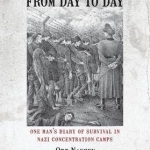
From Day to Day: One Man's Diary of Survival in Nazi Concentration Camps
Odd Nansen and Timothy J. Boyce
Book
In 1942 Norwegian Odd Nansen was arrested by the Nazis, and he spent the remainder of World War II...
